A shelter of hope
January 18, 2024
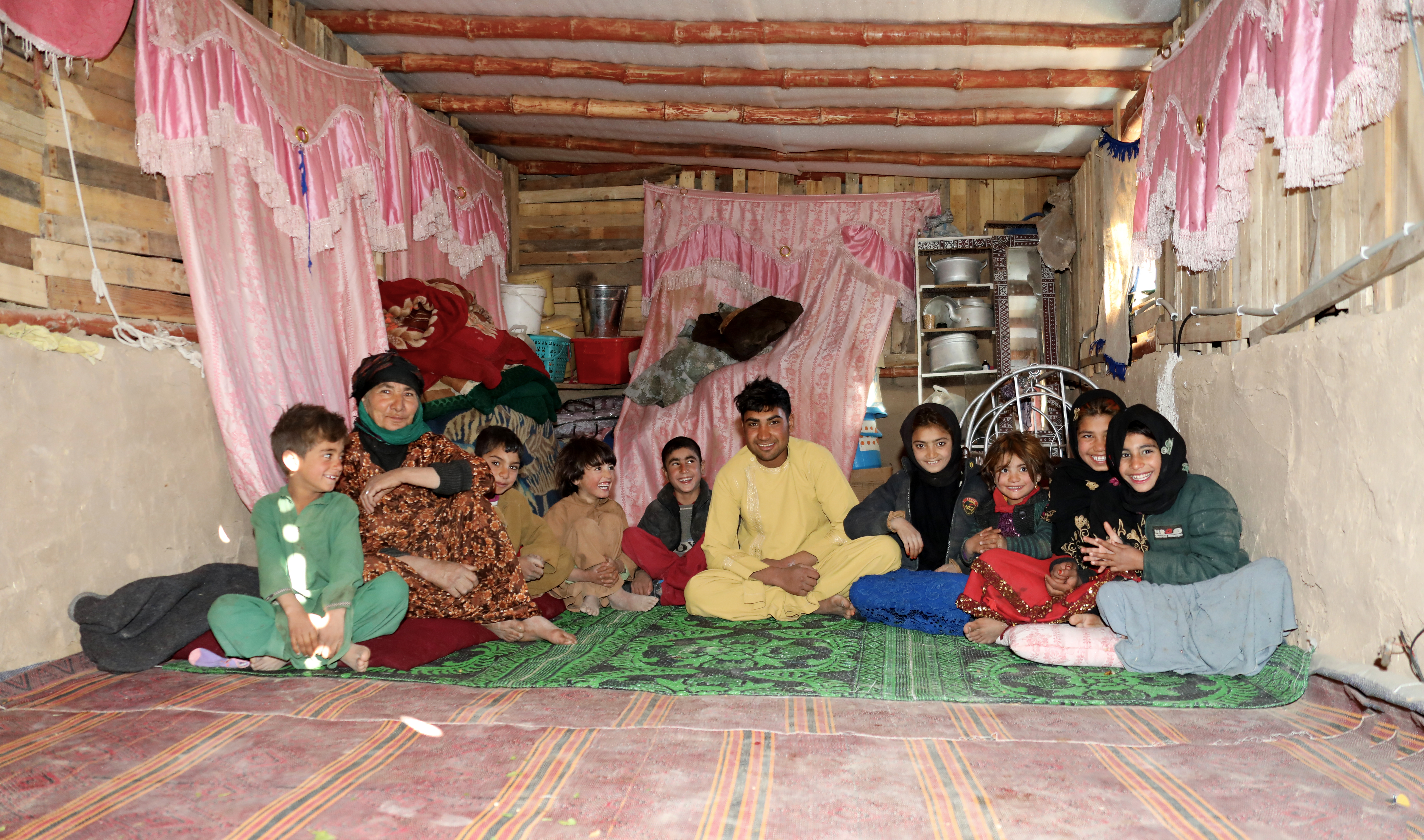
Nineteen-year-old earthquake survivor Rahmat and his family of 12 find refuge in their newly constructed transitional shelter, an initiative supported by UNDP and NCA in Chahak, Herat. They are now protected from the harsh Afghan winter and are hopeful for their future.
The light filtering into Rahmat’s house falls directly on him, highlighting the stubborn lines on his sunburnt face. His face, weathered beyond his years, tells a story of resilience and hope amid adversity. Rahmat, a mere teenager, heads a household of 12, all huddled around him in their transitional shelter. “Now, we are happy,” says the 19-year-old Herat earthquake survivor. “This shelter may be smaller than what we lost in the earthquakes, but it is safe and warm in here.”
Rahmat and his family lost their home in the deadly earthquakes that rocked the western province of Herat in October last year, killing over 2,400 people and leaving over 10,000 homes in ruins. In the harsh Afghan winter that followed, thousands of families sought refuge in makeshift tents, battling strong winds, sandstorms, and freezing temperatures. Rahmat and his family were among them.
As weeks passed, the toll on his family became evident. His elderly father, already grappling with a kidney ailment, grew critically unwell, and his younger siblings struggled to find warmth in the numbing cold. “Had we stayed in those tents anymore, my family would have been severely unwell.”
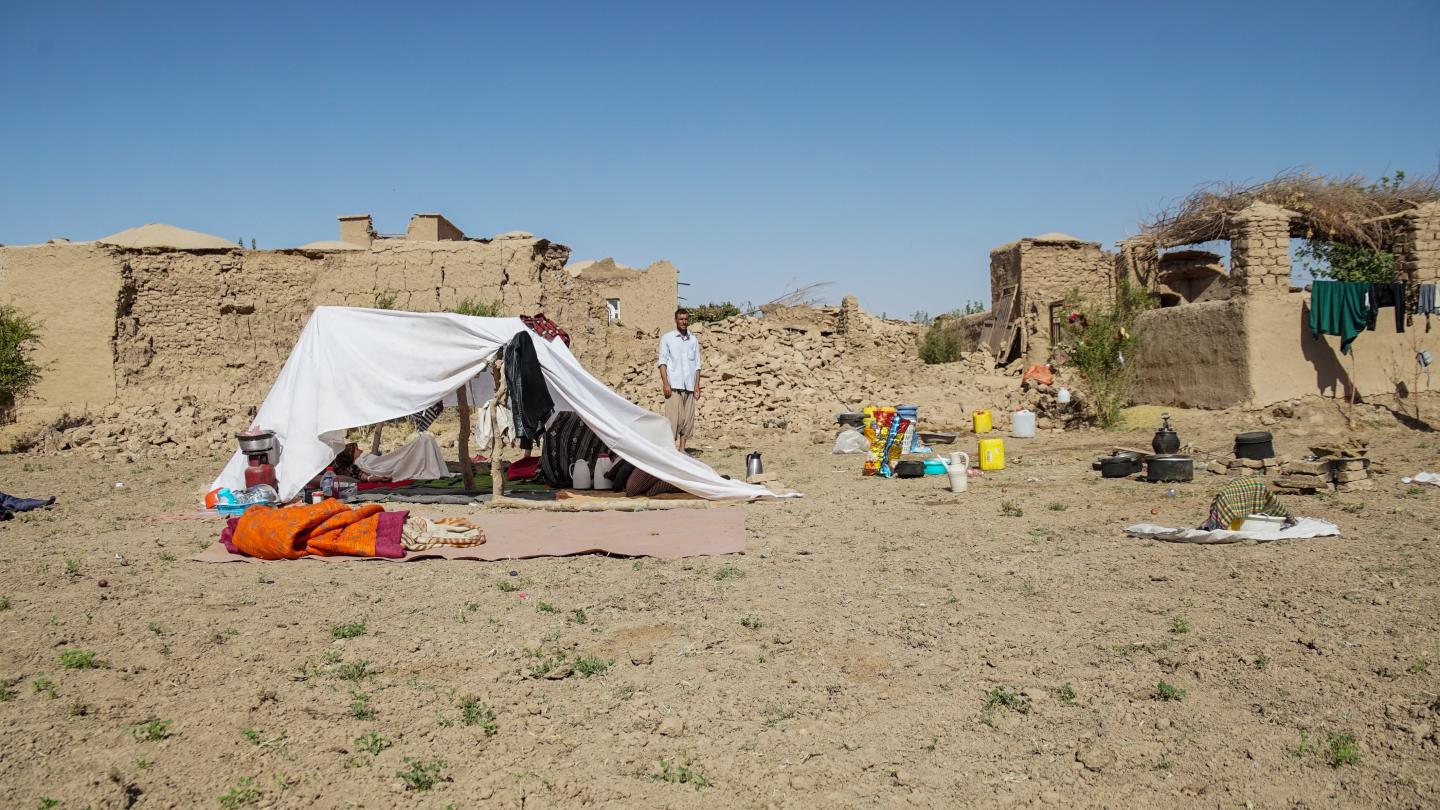
Amidst the catastrophe, UNDP swiftly mobilized teams to assess the damage and address basic needs of the survivors – safe and warm shelters to shield communities from the severe winter and nutritious food for sustenance and wellbeing.
Recognizing the urgent need for shelter, UNDP partnered with the Norwegian Church Aid to construct 235 transitional shelters in Chahak village. In less than three months, these shelters have become a haven for 200 families, offering safety and warmth, including Rahmat’s.
Sitting in his new home, Rahmat reflects on the difference, “Our old home was made of mud so when the earthquakes hit, it stood no chance. This house is strong and sturdy.” He proudly points to the roof of his home and shares, “We experienced a mild tremor the other day, but this shelter stood firm. We felt relieved and protected!”
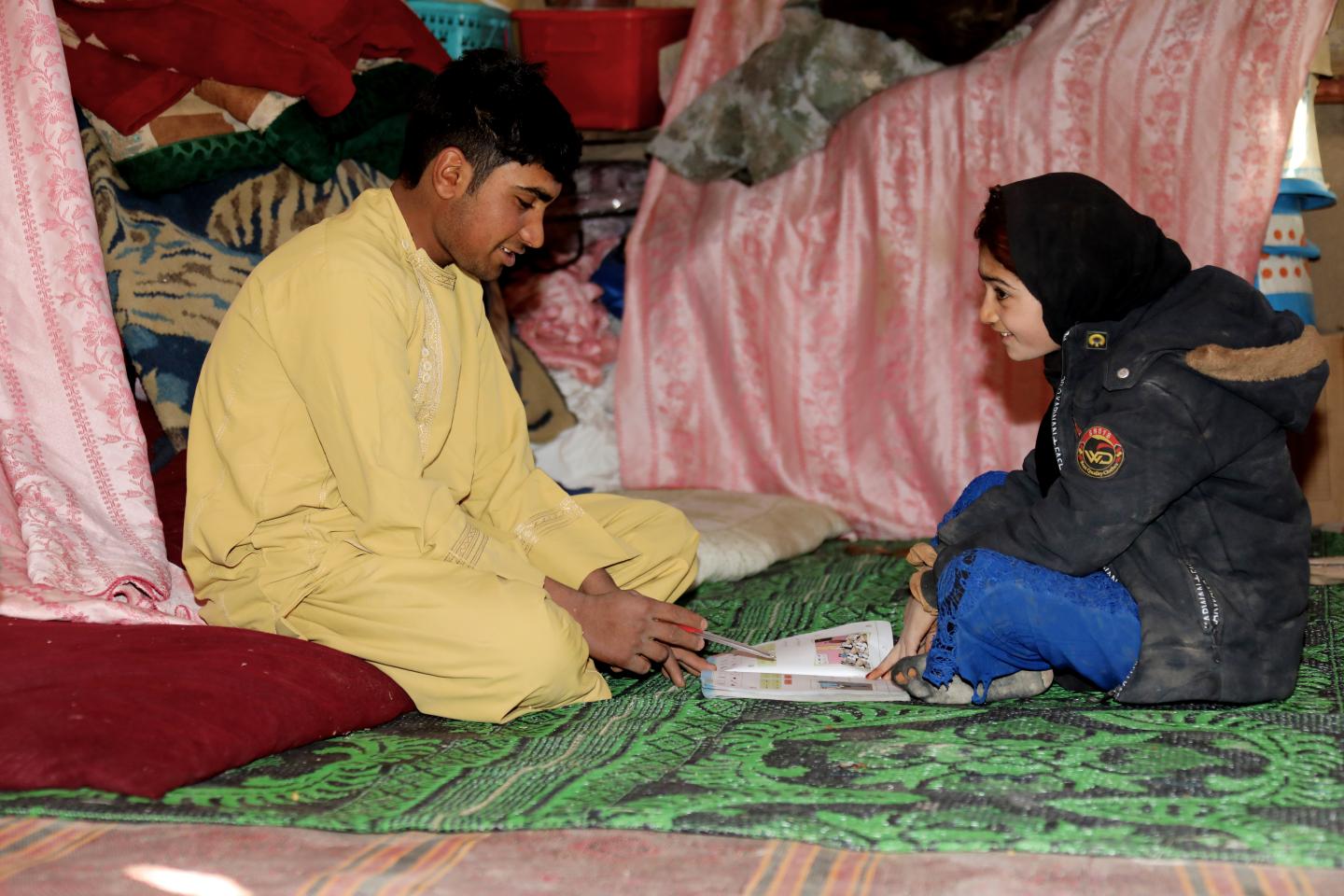
Rahmat’s attention is diverted by the cackling of his siblings. They run in and out of their home, pet the cattle, playfully push each other, and huddle up against the stove, finding comfort in its warmth. We sleep well because it is warm inside, and the door and windows are properly insulated,” he smiles.
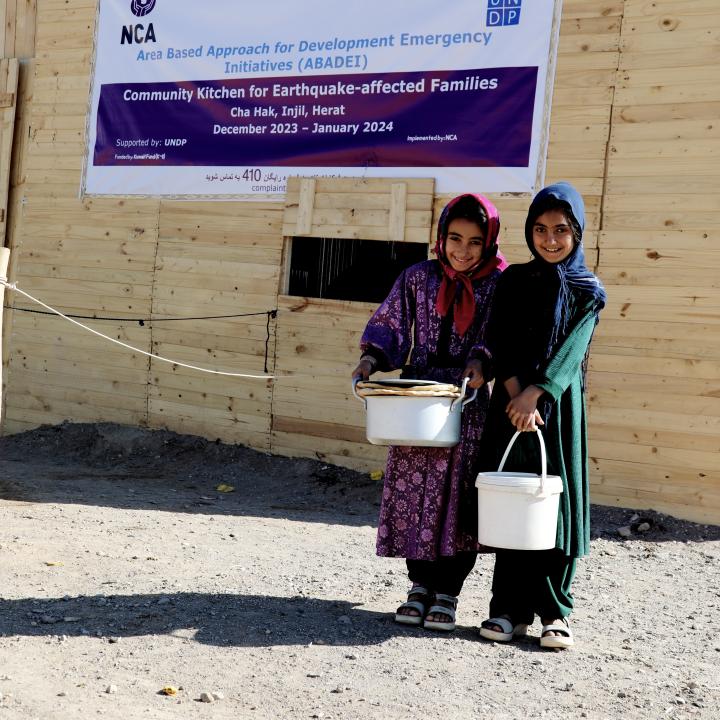
Beyond shelter, UNDP is actively involved in supporting the livelihoods of the affected community through a cash-for-shelter initiative. This owner-driven approach engages community members in the construction of their transitional shelter, while earning an income for the family. Additionally, since the earthquakes, 15 community kitchens in Herat city and six newly established ones in Chahak village have served over 36,000 free hot meals, fostering a sense of resilience within the community.
As Afghanistan grapples with the stresses of protracted crises, including climate vulnerabilities, hunger, economic instability, and population movement, UNDP has been emphasizing the need for global assistance. The organization remains committed to helping Afghanistan rebuild, not only providing immediate relief but also fostering long-term resilience.
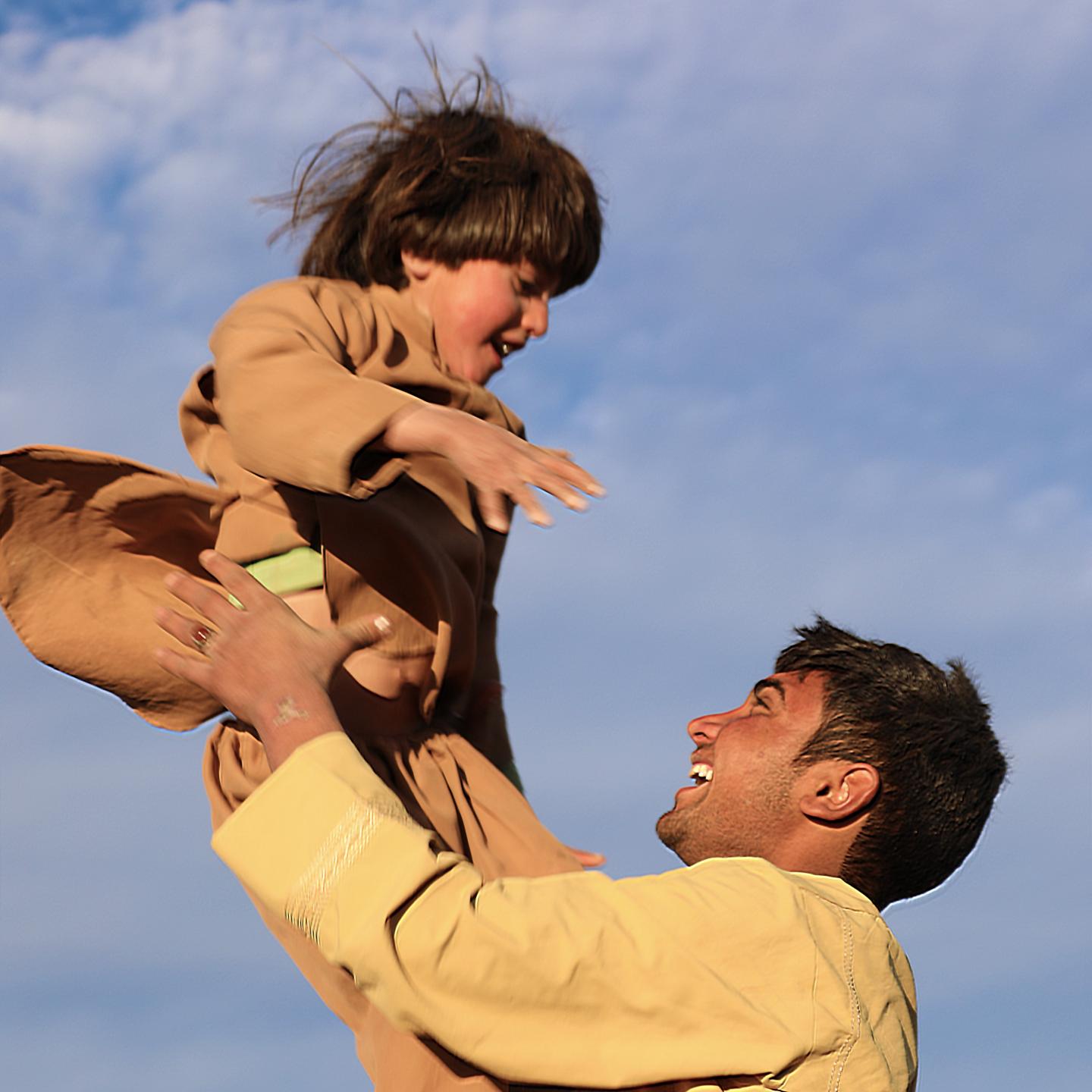
Rahmat, with a shy smile, shares his hope for the future, "I was engaged before the earthquake. Plans are on hold but, hopefully, when life is better, we will get married."
His story, like many others, underscores the crucial need for sustained support to rebuild lives and communities in the aftermath of disasters.
UNDP calls on the global community to unite and support the ongoing efforts to bring hope and stability to those affected by the Herat earthquakes.

 Locations
Locations



